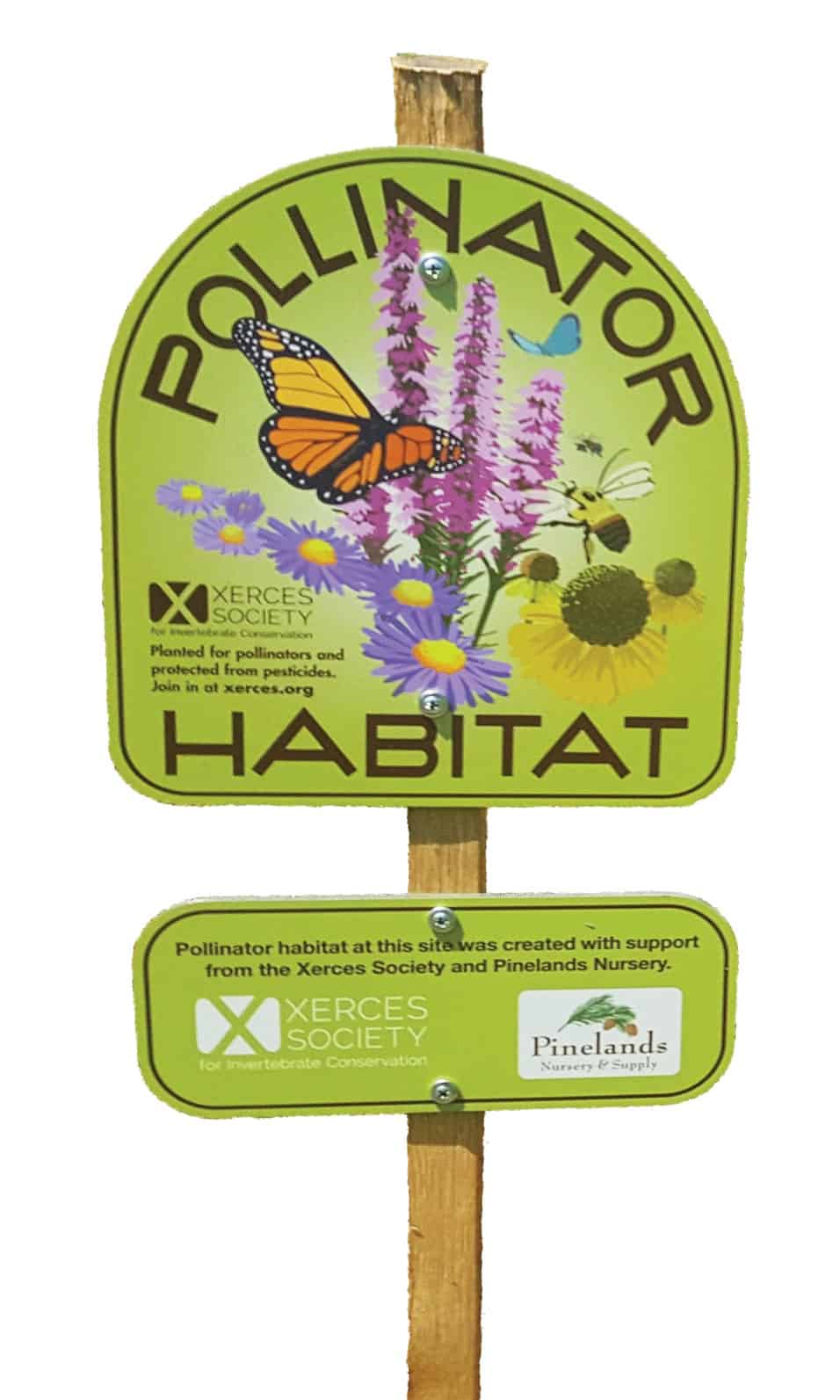Pollinator Partnership.
May 31, 2022
A great spangled fritillary and a red admiral butterfly on the flowers of common milkweed.
 Preston Wilson, preserve manager at our Paunacussing Preserve in Doylestown, Bucks County, has been working for the past decade to make the property a haven for pollinators. Recently, Preston converted 23 acres of agricultural fields to wildflower meadows to improve habitat for bees, butterflies, wasps, and other beneficial insects.
Preston Wilson, preserve manager at our Paunacussing Preserve in Doylestown, Bucks County, has been working for the past decade to make the property a haven for pollinators. Recently, Preston converted 23 acres of agricultural fields to wildflower meadows to improve habitat for bees, butterflies, wasps, and other beneficial insects.
One of every three bites of food eaten worldwide depends on pollinators, especially bees, and they are in trouble. Most experts believe this population decline is due to a combination of factors, including habitat loss, climate changes, parasites, and pesticides.
“Pollinators need food throughout the year, so we take bloom time into consideration when planting.” said Preston. “It’s one way Natural Lands can help. And the flowers we’re planting have the bonus of being beautiful to look at.”
Transforming fields into diverse meadows means a lot of planting. Natural Lands purchased 260 pounds of native wildflower seeds to sow into the fields with a seed drill.
In addition, the Xerces Society for Invertebrate Conservation donated 750 plant seedlings—including milkweed, beardtongue, blue lobelia, cardinal flower, and blazing star—which will cover about 3,000 square feet. Kelly Gill, senior pollinator conservation specialist for Xerces, helped create a planting list for Paunacussing several years ago.
Pollinator Partnership donated volunteer-gathered seeds, including common milkweed, ninebark, and cardinal flowers. Their Project Wingspan initiative works with land stewards like Preston to help them create, enhance, or restore pollinator habitat.
next post
Peering Out.
May 31, 2022
Colleen Cranney says she’s spent so many years as an educator that her teacher skills kick in whenever she’s volunteering at Natural Lands. “At workdays, […]
continue reading